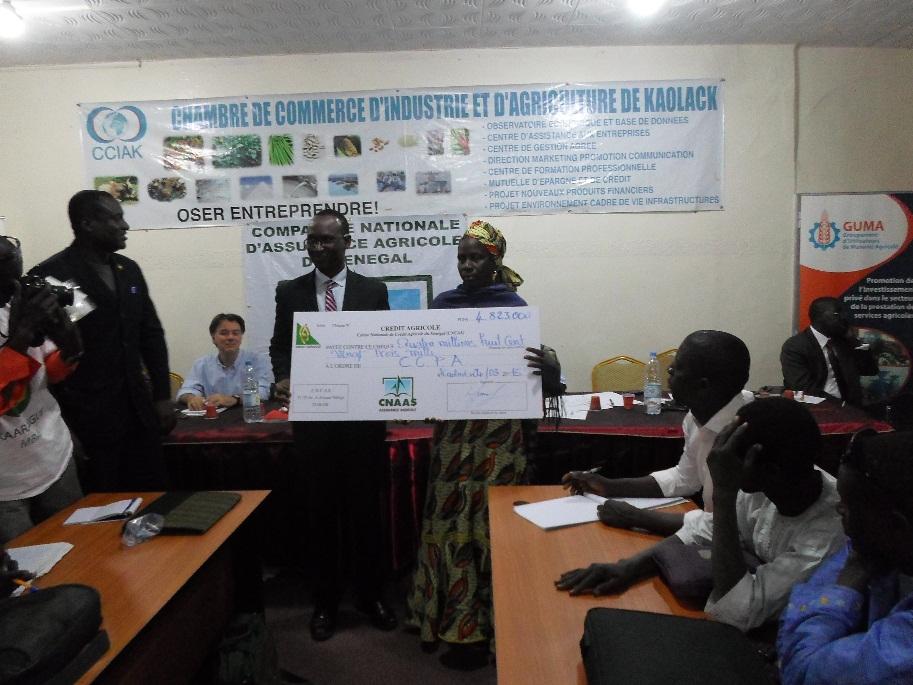Insights from the Field

“We’re all Senegalese, and we should all have access to insurance” says Yoro POULO BA, a groundnut farmer from Ndoffane, a commune from the center of Senegal who just received insurance payouts as part of the GIIF-supported index insurance project. This year, the rains during the month of July - the sowing period for groundnut - were extremely low, therefore triggering automatic payouts for what is called “sowing failure”. The payouts that he has received amount to about 30% of the total insured amount, which is the amount of credit that he has borrowed for seeds and fertilizers needed for his two hectares of land. “It won’t help me repay the total amount of my credit, but it helps me with this repayment”, he highlights.
While he expresses satisfaction with this product and mentions that he plans on purchasing an insurance cover for his other crops such as maize and millet in the future, he indicates that this is not enough. Among the 2000 groundnut producers in his cooperative, only 200 farmers were eligible for an insurance cover this year given the current geographic coverage of Automatic Weather Stations (AWS). With GIIF and USAID support, about 40 automatic weather stations (AWS) have been set up in the region, but in order to minimize basis risk , only farmers within a distance of 5 km from weather stations are eligible for an insurance cover. His last words are a plea for scale-up: “If we had five more automatic weather stations, we could cover 2000 farmers. I know this is expensive, but we’re all Senegalese, and we should all have access to insurance”. One Automatic Weather Station actually costs about 600 USD. Further investments in weather stations is one of the options that GIIF stakeholders are currently looking at in order to scale-up this project. Currently 2200 groundnut producers are being covered as part of the GIIF-supported project in Senegal implemented by the agriculture insurance company of Senegal (CNAAS).
